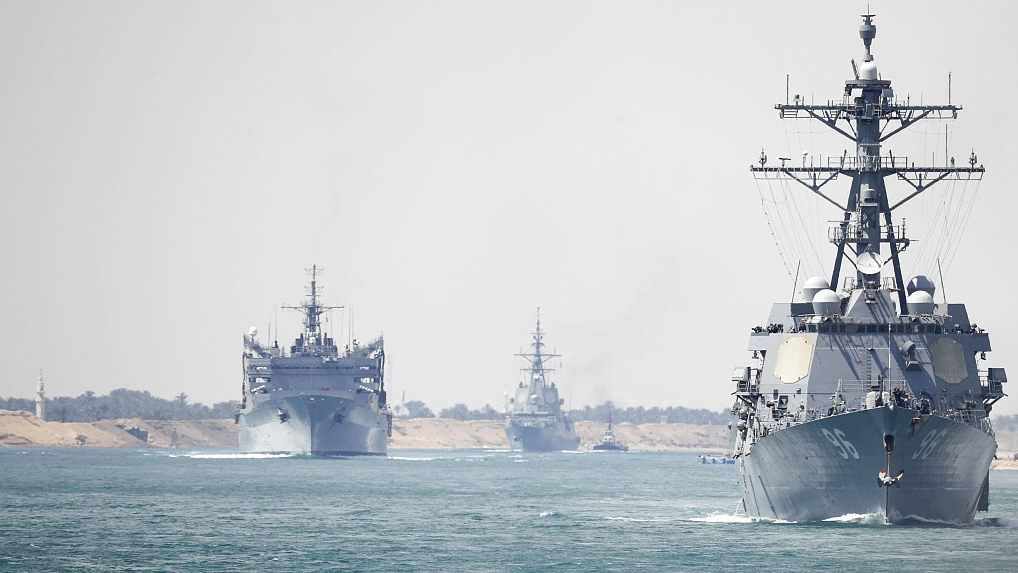
The Abraham Lincoln Carrier Strike Group transits the Suez Canal, May 9, 2019. (Photo: VCG)
The United States' military presence in the Gulf used to be a serious threat but now it is an opportunity, a senior commander of Iran's Revolutionary Guards said on Sunday, according to the Iranian Students' News Agency (ISNA).
The U.S. military has sent forces, including an aircraft carrier and B-52 bombers, to the Middle East to counter what the Trump administration says are "clear indications" of threats from Iran to U.S. forces there.
The USS Abraham Lincoln is replacing another carrier rotated out of the Gulf last month.
"An aircraft carrier that has at least 40 to 50 planes on it and 6,000 forces gathered within it was a serious threat for us in the past but now...the threats have switched to opportunities," said Amirali Hajizadeh, head of the Guards' aerospace division.
He added, "If (the Americans) make a move we will hit them in the head."
Separately, the commander of the Guards said in a parliament session on Sunday that the U.S. has started a psychological war in the region, according to a parliamentary spokesperson.
"Commander Salami, with attention to the situation in the region, presented an analysis that the Americans have started a psychological war because the comings and goings of their military is a normal matter," the spokesperson for the parliamentary leadership, Behrouz Nemati, said in a summary of the Guards' commander's comments, according to Iranian parliament's ICANA news site.
Major General Hossein Salami was appointed head of the Guards last month.
On Saturday, Iranian President Hassan Rouhani called for unity among Iran's political factions to overcome conditions which he said may be harder than those during the 1980s war with Iraq, state media reported, as the country faces tightening U.S. sanctions.
U.S. President Donald Trump on Thursday urged Iran's leaders to talk with him about giving up their nuclear program and said he could not rule out a military confrontation.


